NIHR ARC Northwest London Blog
Applied research collaborations.
- ARC NWL Blog
- NIHR ARC NWL Official Website
- Get Involved
- NIHR ARC NWL Publications
- Imperial College London

Global Postgraduate Retreat: Thesis Writing
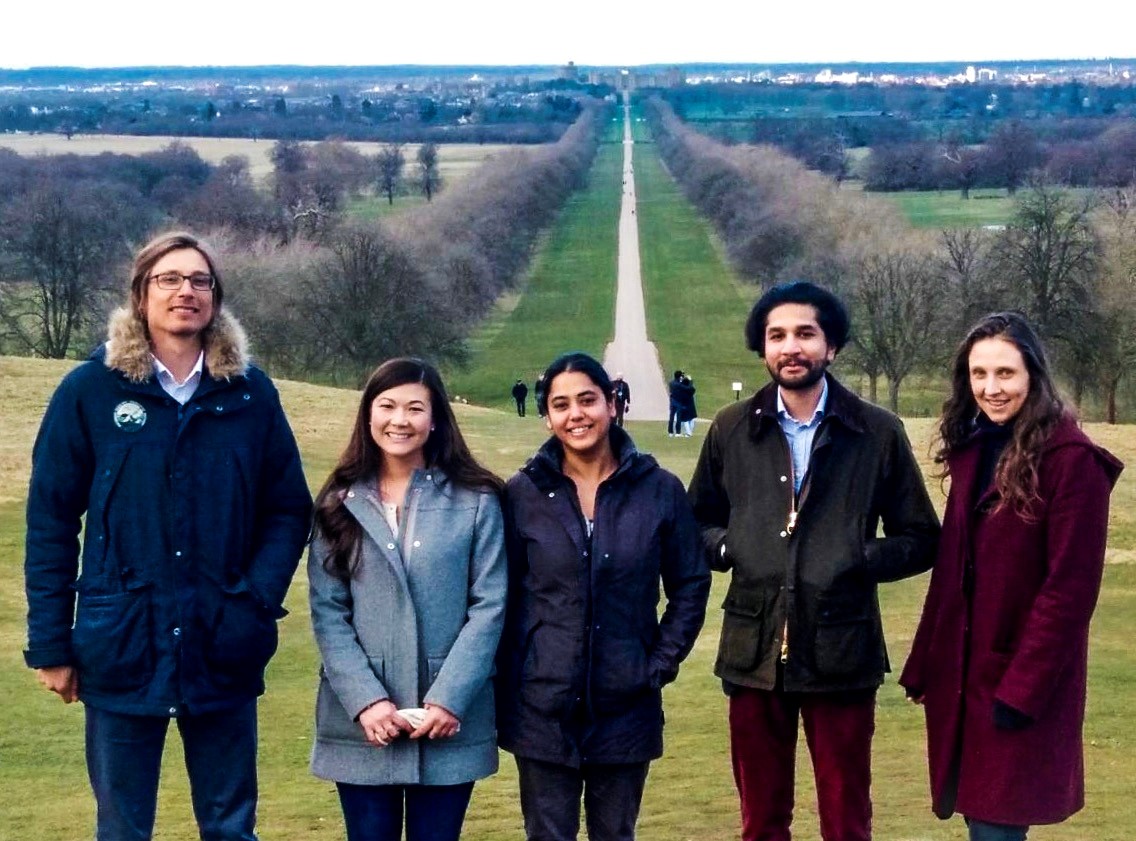
Doctoral research students from a number of disciplines across Imperial College attended a two-day writing retreat in March at Cumberland Lodge in Windsor , Berkshire. Jointly run by the Graduate School and the Centre for Academic English (CfAE) at Imperial College, this retreat provided a focussed and supportive environment for those present. From NIHR CLAHRC NWL , 5 doctoral research students attended (L-R: Tomasz Szymanski, Laura Lennox, Meerat Kaur, David Sunkersing, Sophie Spitters), utilising the retreat to focus on writing their thesis, gain new perspectives on approaches to writing – and how to become more effective writers. Individual support from the Graduate school and CfAE was available throughout the retreat, providing feedback and advice, as appropriate.
Attending the Imperial College two-day writing retreat was a great opportunity to work on my thesis, in addition to getting support and advice on the overall PhD. Cumberland Lodge is a unique and distinctive place to write in, steeped in rich history and heritage. I would recommend the retreat to all doctoral research students in the final stages of their PhD. – David Sunkersing, PhD Student for NIHR CLAHRC Frailty theme.
Share this:
- Share on Tumblr

- Cherelle Augustine
CLAHRC NWL Initiatives , Collaborative Learning and Partnerships , Cross Cutting Themes
Centre for Academic English , Global Postgraduate Retreat , Imperial College , PHD student , Thesis Writing , Windsor , writing retreat
Leave a comment Cancel reply
Upcoming events.
No upcoming events
- About NIHR ARC NWL
Recent Posts
- Register for our Online Learning Event Today!
- Exclusion in Research: A point of view from Black and Asian Research Partners
- Looking for an Advanced Research Fellow to join the team
- Join the Team: Job Vacancies Available
- We’re recruiting 5 PhD Studentships for World-Class Applied Health Research Projects
Category Cloud
Clahrc nwl social.
- View CLAHRC_NWL’s profile on Twitter
Follow CLAHRC NWL Blog via Email
Enter your email address to follow this blog and receive notifications of new posts by email.
Email Address:
Follow CLAHRC NWL
CLAHRC NWL RSS
- RSS - Posts
- RSS - Comments
Follow me on Twitter
- lindaeftychiou
- meeratclahrc
- Sophie Spitters
- stuart4clahrc
Social Links
- View CLAHRCnwl’s profile on Facebook
- View @CLAHRC_NWL’s profile on Twitter
- View CLAHRC_NWL’s profile on Instagram
Create a website or blog at WordPress.com

- Already have a WordPress.com account? Log in now.
- Subscribe Subscribed
- Copy shortlink
- Report this content
- View post in Reader
- Manage subscriptions
- Collapse this bar

Covering books and digital resources across all fields of history
ISSN 1749-8155
Britain's Imperial Retreat from China 1900-1931
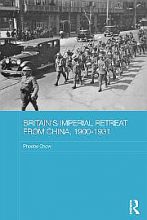
On 27 April 1913, in the early hours of the morning, the Hongkong and Shanghai Bank, acting on behalf of a Consortium of five western powers, and representatives of the republican government of China signed what became known as the Reorganisation Loan. They did so in conditions of the utmost secrecy since there was concern that, if word got out, anti-imperialist forces would seek to prevent its completion. (1) It was the culmination of a process which had begun 15 years earlier, which saw China steadily mortgaging its revenues to fund the punitive indemnities imposed following the Sino-Japanese War (1894–5) and the Boxer Uprising (1900), and to finance the building of the country’s railways. To prop up Yuan Shikai’s fledgling regime following the fall of the Qing in 1911, something more fundamental was required. With the Customs tariffs already used up, the salt gabelle was the only significant security left available. In return for a loan of £25 million, the Consortium assumed control over its collection and, effectively, over China’s economy. (2)
This was, as most acknowledge, the high point of financial imperialism in China. (3) However, whilst not challenging this view, Phoebe Chow contends that, as the title of her book implies, the seeds of ‘imperial retreat’ had already been sown in the Foreign Office mind: by 1901, there were, she says, ‘subtle changes in how opinion-makers and policy-makers wrote about China’ and, by 1906, Sir Edward Grey, the Foreign Secretary in the newly-elected liberal government, had become ‘willing to embark on a new policy of gradual retreat from China’. It is a bold and novel thesis and one that allows for a powerful analysis of Sino-British relations in the early 20th century, and of the wider issue of how foreign policy was already being shaped by public opinion, whatever its exact form at that time.
However, her argument raises a number of questions: first, whether there were any signs of retreat as early as 1906, secondly, whilst there may have been a shift in the official approach to China at that time, whether this reflected a policy of such retreat and, thirdly, whether there was ever any such policy as opposed to an ad hoc response to events as and when they occurred. These questions are generated by Chow’s own assertion that, in the first decade of the 20th century ‘British policy can be seen as continuing a pattern of imperial rapaciousness’ and that, between 1911 and 1918, ‘ostensibly, the British resolve to maintain informal empire in China continued unabated’. If imperial rapaciousness was continuing unabated, it may be asked, how is that consistent with Britain already having decided to beat retreat? To answer this, Chow points to a number of concessions ostensibly made by Britain to Chinese nationalism, first, during the 1900s and, then in the aftermath of the First World War.
Potentially the most significant of these related to railways and the decision to cede control over their construction and management to the Qing. However, this policy was driven by the Hongkong Bank, not by the Foreign Office, and its aim was to ensure that the Bank retained the lion’s share of the lucrative loans business which underpinned railway construction. As the chief architect of that policy, the Bank’s Manager in Peking, Guy Hillier, told the senior management in Hong Kong, there was no longer any need for those loans to be secured over the railway revenues: instead, ‘the real security’ was in ‘the credit and good faith of the Chinese government and the latent wealth of the country which it needs only financial pressure and improved conditions to bring out’. (4) Whilst co-operation between the powers replaced competition and thus led to a reduction in the bank’s market-share, and in this sense, there was, as Chow says ‘a slow retreat’, this did not alter the imperial nature of the exercise. On the contrary, by making it more difficult for China to play the powers off against each other, a cartel was effectively imposed which substantially strengthened their bargaining position. Whilst the nationalisation of the Hankou-Canton railway may have been the trigger for the downfall of the Qing in 1911, it was the Western powers’ strangle-hold over the country’s economy that fuelled the anti-imperialist fervour. (5)
If, therefore, there was a degree of re-positioning, it was not part of an imperial retreat but of a strategy designed to ensure that the principal elements of imperialism remained firmly in place. If Grey and the Foreign office took some persuading about the loss of control, this was precisely because they did not want to erode Britain’s pre-eminent position vis-à-vis China. As Chow acknowledges, this change of approach ‘did not address the bases of informal empire. There was no questioning of British leadership of the Imperial Customs Service nor of the entire tariff system nor of extraterritoriality’.
This is not to dispute her case that, during the 1900s, a wide variety of opinion-makers displayed what she calls a ‘conciliatory’ approach, one very different from that of the stereotypical imperialists who saw China as irredeemably weak and corrupt. But her suggestion that this approach only became manifest around 1900 is more questionable. It can be dated back to the 1860s when the legations first opened in Peking and China was encouraged to join ‘the family of nations’. From then on, however imperialist the presence of Britain and the other powers, the exercise became increasingly collaborative, albeit with China as the subservient partner. To achieve that collaboration, there needed to be the sort of ‘cultural sensitivity’ towards China, which British officials displayed, most famously Robert Hart, Inspector-General of the Imperial Customs Service. From the early 1860s, he nurtured and advocated a belief in China and its future and repeatedly stressed to his European staff the importance of seeing the Inspectorate as ‘a Chinese and not a Foreign Service’ and acting at all times in its best interests. (6) Similarly, the Foreign Office instructed the treaty port consuls to ‘seek an easy and familiar relationship’ with their Chinese counterparts and ‘to do their best to break down the barriers imposed by different customs and habits of thinking’. (7) Whatever difficulties there were in implementing this policy, the Chefoo Convention (1876) and the opening of China’s first embassy in London the following year heralded a steady improvement in Sino-British relations. The response of the Illustrated London News to the arrival of the Chinese envoys reflected this mood of optimism:
the presence in London of the Ministers is another of the indications which of late years, China has given of her having awakened to a sense of her position among nations... the most favourable opinion is entertained towards the Embassy by the people of every class throughout the whole of this country ... their Excellencies must have found proof of this in the hearty welcome shown them by the cheering of the people. (8)
This gradual improvement in China’s international standing only came to a halt in 1895 with its unexpected and catastrophic defeat by Japan. Whilst that opened the way to the West’s unseemly scramble for territory and influence in the last years of the century and the resulting Boxer Uprising, Britain’s policy was directed at preventing China’s dismemberment in order to retain its dominant position. In the main, therefore, official policy had been ‘conciliatory’ since the 1860s and, if there was a greater degree of anti-imperialist sentiment in the early 1900s, this had little influence on that policy.
As evidence of the change in public opinion towards the end of the decade, Chow cites the long-running dispute between the arch imperialist, J. O. P. Bland, and the more conciliatory George E. Morrison, Foreign Correspondent of the Times and sometime Political Adviser to China. However, the main power-base which was influencing British policy in respect of China from 1900, if not earlier, was the triumvirate of Peking institutions, comprising the Legation, headed by the Minister, the Imperial Customs Service headed by Sir Robert Hart, ‘the most powerful Westerner in China’ and his successors, and the Hongkong Bank which had become the British government’s financial instrument in China. Whilst they were willing to countenance conciliation and compromise where necessary, none of these had any desire to beat a retreat from a presence which they considered to be in the long-term interests of both China and Britain.
This mix of Sino-sympathy and imperial self-confidence was embodied in Sir John Jordan, British Minister in Peking from 1906 until 1920. Soon after his appointment, he wrote to Francis Campbell at the Foreign Office, ‘China is making great material and educational progress ... there is a great reserve of sense and stability ... fuelled by a well-informed and highly articulate press, there is an enthusiasm for reform [which] is infectious and touches virtually every aspect of life’. (9) However, this does not mean he wanted to rein back Britain’s presence. As Chow says, when Morrison challenged the terms of the Reorganisation Loan as being exploitative and ‘humiliatingly severe’, Jordan’s hostility towards him became ‘palpable’. He thus typified the unabated imperial approach. If it was less effective in the aftermath of the First World War, this was because Britain then faced a very different set of circumstances, as Chow describes in the second half of her study.
That the imperial presence slowly diminished after 1918 and finally ended in 1943 is not in dispute but how and why this came about is more controversial. Most recently, Robert Bickers has focussed on the social and political forces that mobilised within China to free the country from western domination and has shown how the international powers, including Communist Russia, a liberal-minded United States and an awakening Japan, vied to exploit those forces for their differing ends. Whilst the Goumindang increasingly looked to America for support, the delay in dismantling the imperial apparatus only served to reinforce China’s sense of national humiliation and the narratives that support it to this day. If Bickers focuses less on Britain’s internal politics and the agitated hand-wringing of men such as Austen Chamberlain, the Foreign Secretary in the mid-1920s, this was because, as he sees it, Britain was no longer setting the agenda. (10)
Chow, on the other hand, argues that the Foreign Office effectively orchestrated the retreat, influenced by, and responding to, the changing attitudes of British opinion-makers. At times, however, her own account seems at odds with this thesis, for example, when she explains the failure to return Weiheiwai on the grounds that ‘China’s internal disorder provided ample excuse and rationale for delaying the process’. In other words, the aim was to give a semblance of retreat whilst holding onto imperial power for as long as possible.
Token measures such as remitting part of the Boxer Indemnity, and using the funds to set up cultural programmes, were small beer compared to the continued requirement that China meet its obligations under the Reorganisation Loan and threatening military action when repayment was at risk. Such measures were self-serving and failed to tackle the fundamental iniquity of extra-territoriality and a presence that continued to violate China’s sovereignty. It took the shooting of unarmed demonstrators by the Shanghai police in 1925 and the ensuing May 30 th Movement to persuade Chamberlain and the Foreign Office that it was time to make retreat official policy, but even then the FO continued to stall. Whilst Chow suggests that it was dissuaded from taking firmer action against the protesters because of increasing support amongst left wing sympathisers and missionaries, it seems more likely that it was because the foreign powers (with the exception of France), most obviously the United States, were, as she says, wholly against such action.
Whatever change of policy was in the mind of the FO – and certainly Chow shows that there were both ministers and officials, who favoured a more conciliatory approach – Britain’s presence remained unashamedly imperial; the Customs continued to be foreign-administered and there were plenty of official pronouncements about the corruption and weakness of China justifying Britain’s presence and the use of force when necessary. And when trouble broke out in the British concession of Hankou, some 13000 troops were despatched to defend the International Settlement in Shanghai. Chow’s analysis of the ensuing debate is enthralling with both sides assuming entrenched positions and the FO vacillating as to what action to take. Meanwhile the Guomindang could not wait for Britain to leave and, as she neatly puts it, ‘now that China was “awakened”, the Chinese people were no longer ignorant of or passive in response to British hypocrisy’.
However, whilst the surrender of the Hankou concession was a potentially significant step, it is difficult to see that this was part of a measured policy. Instead, as she shows, the FO wanted to exact reprisals including destruction of forts and arsenals in a way more reminiscent of the gunboat diplomacy of the previous century. With its support, Admiral Tyrwhitt, the commander-in-chief of the Shanghai Defence Force was ‘impatient to act’. However, to his disappointment, the action was called off, not because public opinion was against it – the war-monger ‘die-hards’ were in the ascendancy and only too keen to teach China a lesson – but because ‘the British found their plans circumscribed once again by the intractability of the other powers’. It was thus only outside influence that restrained a further episode of imperial aggression.
Dismantling this apparatus only seriously began when, following Britain’s recognition of Chiang Kai-shek’s National Government in 1928, the transition to tariff autonomy was put in hand and this is where Chow’s study concludes. Although the outcome had become inevitable, it would be another fourteen years before extra-territoriality was formally ended with the withdrawal from Shanghai. Chow shows convincingly how powerful factions within Britain and treaty port China, both imperialist and liberal-mind, sought to influence the government. But, uncertain how to respond, it delayed taking any action for as long as possible, using China’s internal problems to buy time. Whilst she calls this a policy of ‘gradualism’, in truth it was no more than a wait and see approach, reacting only when there was no other option. Along with the other Western powers, Britain’s approach was to create a space which would be, as Bickers puts it, ‘capacious enough to satisfy Chinese honour, but bounded enough to perpetuate foreign privilege’. (11) It seems difficult to see this as a policy of measured imperial retreat.
Moreover, had there been such a policy, it would have been evident elsewhere, notably in South-East Asia. However, in the inter-war years, within the complex web of formal and informal empire in Malaysia, the British attempted to consolidate networks of power by creating a more closely integrated political unit. Whilst there was an embryonic nationalism, there was little challenge to the imperial structures and for the British, it was ‘a halcyon period’. Even after the Second War, the British clung to their imperial possession, only conceding independence after a bitter struggle euphemistically called ‘the Emergency’. (12) And they clung onto Hong Kong for even longer. Even as the clock ticked down for its return to China, Prime Minister, Margaret Thatcher, cheered on by the media, felt able to lecture Premier Zhao Ziyang that the British had a ‘moral obligation to the people of Hong Kong which we must honour’. (13) None of this suggests that China was an exception to Britain’s policy in the Far East.
However, even if some of Chow’s arguments are not wholly convincing, the value of this study lies in its analysis of the various strands of public opinion, and the differing perceptions of China, which emerged during this period, and of the links between those opinions and official policy, however tenuous they may have been. In particular, her account of the heated debates in the 1920s between the die-hard imperialists, urged on by the Daily Mail, and the moderate conciliators both in and out of Parliament, is fresh and engaging, and has a distinctly familiar ring; Hong Kong’s Governor, Sir Cecil Clementi, and his wife, complaining that the Foreign Office had gone ‘completely off the rails in China’ and was ‘more hostile to British interests than the enemy’, and concluding with the imperial mantra, ‘conciliation is misunderstood by Orientals, almost always’. How much ice this cut with the Foreign Office is possibly less important than the light it throws on Britain’s imperial psyche. Whilst making links between opinion and policy is complex and inevitably speculative, it is important for a proper understanding of such forces and of why events unfold in the way that they do. At a time when government policy is increasingly shaped by the shallow populism of much of the press, the importance of such studies is self-evident.
- Frank King, The Hongkong Bank in the Period of Imperialism and War, 1895-1918, Wayfoong, The Focus of Wealth , ii, The History of the Hongkong and Shanghai Banking Corpor ation (Cambridge, 1988), p. 501. Back to (1)
- For an overview of the period covered by this review, see Odd Arne Westad, Restless Empire: China and the World since 1850 (London, 2012). Back to (2)
- Jűrgen Osterhammel, ‘Britain and China, 1842–1914’, in The Oxford History of the British Empire, iii. The Nineteenth Century , ed. Andrew Porter (Oxford, 1999), pp.146–69, at pp. 164–8. Back to (3)
- Letter, E.G. Hillier to Townsend, 12 July 1907, HSBC Archive, SGH 277b, p.12, King, Hong Kong Bank ii , pp. 364–72, 388–95 and 418–34. Back to (4)
- King, Hongkong Bank, II, pp. 439–50 and 462–3. Back to (5)
- Richard S. Horowitz, ‘Politics, power and the Chinese maritime customs: The Qing Restoration and the ascent of Robert Hart’, Modern Asian Studies, 40 (2006), pp. 549–81, at p. 557; Circular No. 8/1864, Documents Illustrative of the Origin, Development and Activities of the Chinese Customs Service, vol.1/37 (Shanghai, 1936–40), Catherine Ladds, Empire Careers: Working for the Chinese Customs Service, 1854–1949 (Manchester, 2013), pp. 24-48. Back to (6)
- P. D. Coates, The China Consuls: British Consular Officers, 1843–1943 (Oxford, 1988), pp. 188–9. Back to (7)
- The Illustrated London News, 70 (24 February 1877), p. 171. Back to (8)
- Letter, Jordan to Campbell, 16 September 1906, TNA FO 350/4/3. Back to (9)
- Robert Bickers, Out of China: How the Chinese Ended the Era of Western Domination (London, 2017), especially pp. xxi–xli, 62–7, 104–27 and 245–73. Back to (10)
- Bickers, Out of China, p. 44. Back to (11)
- A. J. Stockwell, ‘Imperialism and Nationalism in South-East Asia’, The Oxford History of the British Empire, iv, The Twentieth Century , ed. in Judith M. Brown and Roger Louis (Oxford, 1999), pp. 465–89, at p. 469 and T. N. Harper, The End of Empire and The Making of Malaya (Cambridge, 1999), pp. 18–35 and passim. Back to (12)
- Bickers, Out of China, p. 385. Back to (13)
Author's Response
I thank Dr Hillier for his review and Reviews in History for giving me the opportunity to respond to what seems, at first glance, a dismantling of my entire argument. Upon more thorough reading, however, his review is a useful supplement to my book and I believe we have more areas of agreement than not.
Whilst I was pleased to see that my book was provocative enough to raise some questions from Dr Hillier, some of his questions are based on a misunderstanding of my main argument. He contrasts my ‘argument’ with Professor Bickers’ emphasis on domestic socio-political forces in China that mobilised to rid China of the foreign presence and an acknowledgment of the role of the international environment (Soviet Communism, American liberalism and Japanese expansionism). He says, ‘Chow, on the other hand, argues that the Foreign Office effectively orchestrated the retreat, influenced by, and responding to, the changing attitudes of British opinion-makers’. This is a complete mis-representation of my central point. I never meant to argue that the Foreign Office operated in a vacuum or that it single-handedly dismantled the imperial structure in China. The point of my book was to shine a light on an important and heretofore neglected part of the story of imperial retreat – the importance of changing cultural perceptions and public opinion about the Chinese and its impact on policymaking – working in conjunction with all the other factors Hillier cited.
He also sets up a false contrast when he says, ‘However, her argument raises a number of questions: first, whether there were any signs of retreat as early as 1906, secondly, whilst there may have been a shift in the official approach to China at that time, whether this reflected a policy of such retreat and, thirdly, whether there was ever any such policy as opposed to an ad hoc response to events as and when they occurred.’ In a couple of places he says that it’s difficult to see a ‘measured policy’ or a ‘measured retreat’. I never argued that there was a conscientiously-formed policy of retreat as early as 1906. British policy towards China could be both an ‘ad-hoc response to events as and when they occurred’ and also result in an erosion of the British position. My argument is not based on assumptions of purposeful or ‘measured’ retreat by the imperialists for most of the period, but rather, I wanted to show the gradual decline of the British position, despite the wishes of financial and government interests, because of events in China and international factors out of their control and the (mostly unwelcome) pressure of public opinion. Only in 1920s and 1930s did a policy of retreat become official and even then, it was slow-going.
The changes in perceptions about China are an important and interesting part of the story of retreat, but Hillier is troubled by my ‘suggestion that the conciliatory approach’ to China began in 1900 and says that it actually can be dated back to the 1860s. I did not mean to suggest that the conciliatory approach began in 1900 – in fact, I’d go further back than Hillier and say, as I did on the first page of my book, that concerns about morality existed from the beginning of Britain’s ‘informal empire’ in China and ‘continued to eat at and ultimately erode imperial resolve...’. If one were being pedantic, one could argue that advocates for conciliation were already active during the First Opium War (e.g. Gladstone) or that contradictory perceptions of the Chinese by Westerners existed from Roman times, but I don’t see much point in this exercise. I chose to begin the book with 1900 because the Boxer Crisis was a watershed in influential persons’ thinking about China. Hillier says that I neglect the ‘triumvirate’ of Peking institutions (the Legation, the Maritime Customs Service headed by Hart and the Hongkong and Shanghai Bank) whilst focusing on the Bland-Morrison dispute, but I do devote a section to Sir Robert Hart’s ideas and influence in the aftermath of the Boxer crisis. He does make a valid point, however, that I could have discussed the role of the Legation and the Hongkong and Shanghai Bank more.
That is why I see his review as a useful supplement to my book – Hillier’s focus on the British institutions and interests in China will be helpful for any further research I do in this area. In the end, I believe that Dr Hillier and I would both agree that, despite minor disagreements on dates and emphasis, changing perceptions of China did contribute to 'retreat' from China and that the story of China in the British mind is still worth exploring.
Search type
University Wide
Faculty / School Portals
- Professional Development
Writing Camps
Intended to help graduate students and postdoctoral fellows make writing progress, these camps and resources prioritize work-life balance and community building to foster wellbeing and writing development. This page contains information on our popular writing retreats, but don’t forget about resources such as SASS , a unit that offers Grad Writing Labs, 1:1 writing consultations, and supports for students for whom English is a second language.
Dissertation Boot Camp (DBC)

The primary aim of DBC is for you to write and to make substantial headway on your thesis. To achieve this goal, you’ll spend the majority of your time writing, with breaks for snacks, lunch, and structured group discussions about topics relevant to thesis writers. All this in a distraction free environment (if in person) or in your own home.
It is important to meet with your supervisor prior to the DBC to plan your goals for the time period of the camp.
Registration for the Winter 2024 (February 20th - 23rd) is now open .
Dissertation Day Camp (DDC)
Similar to the Dissertation Boot Camp, Dissertation Day Camps are designed to help students work on their writing in a focused environment alongside other graduate students.
Registration for the Winter Dissertation Day Camps is now open - check out our Workshops & Opportunities page for more information!
The Lake Shift

There is a small fee to be a part of this camp.
Submissions to be considered to be one of ten Queen's doctoral students to attend the 2024 Lake Shift will be open in June 2024 .
Dissertation on the Lake

Each day will be loosely structured around two writing sessions: three hours in the morning and three hours in the afternoon (you can always write for longer!) Although writing will be the primary activity, there are ample opportunities for relaxation including swimming, canoeing and hiking.
Registration for Dissertation on the Lake 2024 will open July 2024.
PA Day Writing Circles

To be held on four PA Days each year, students will work on their theses or other pieces of writing while their children will be cared for by programming provided by Athletics & Recreation staff.
Details on how to register for the camp will be posted in the event calendar the month before the camp. There is a reduced fee for the children to attend the Athletics & Recreation camp.
Registration for the Winter PA Day Writing Circles is now open - check out the Workshops & Opportunities page for more information!
Why you should create your own thesis writing retreat (or reasons to travel)
Suffice to say I only had one emotion when Kylie Budge, PhD student at the University of Melbourne and academic at RMIT, sent me this post.
Let Kylie give you a justification for planning that thesis writing retreat you have always wanted…
Ever considered the idea of taking yourself away for a self-imposed thesis writing retreat? Would it be helpful? No doubt, like me, you’ve harboured fantasies of doing just this. Taking yourself out of your usual environment and the usual distractions so you can put your head down and tail up to finish a big chunk of writing.

The article by Shapira and Liberman, explains recent research by Jia, Hirt & Karpen (2009) about the way spatial distance plays a role in creative cognition. If we dig into Shapira and Liberman’s article a little more it’s possible to see that taking ourselves away is an effective strategy to increase creativity because situation and context play a part in generating this for us humans. There’s some well-argued theory in there too about the role of distance in the psychology of creativity. The article’s authors add fuel to your thesis-retreat-argument by saying:
. .. there are several simple steps we can all take to increase creativity, such as traveling to faraway places (or even just thinking about such places), thinking about the distant future, communicating with people who are dissimilar to us, and considering unlikely alternatives to reality.”
Several steps, yes indeed. Well as it happens, I’m taking one of those aforementioned steps to write some of my thesis. I’d already planned my particular approach before reading about this research on distance and creative cognition. However, I must say, I am rather pleased that I now have evidence to support my need/desire to go to New York for a whole month later this year to do a chunk of thesis writing for my PhD.
That’s right, New York .
Not some quiet little country town in Australia surrounded by the peace and serenity of gum trees and the silence of red earth, but New York – a noisy, densely packed part of the world. And I’ll be based in Manhattan , no less. I’ve had a range of interesting reactions from my partner, friends, family and colleagues (not looking at you @teachingruth ). Most have been quite astonished (and disbelieving) that going to NY would help me accomplish my aim (to write a big section of my thesis). Instead most assume my NY thesis writing retreat idea is just an art/museum/shopping-fuelled holiday in disguise.
I will not lie. There will be some art. In fact, as much art and museum-hopping as I can fit in. But in all seriousness, my month in NY will be focused around a daily thesis word target that will keep me locked and bound to my laptop until it is met. It is a firm contract to myself. Once the daily word target is met I have my own permission to flee my writing quarters (it might be the apartment, might be a local café, might be the NY Public Library – each day shall dictate where) to do whatever it is my NY abode-ing heart desires. Or if exhaustion is the flavor of the day, take a walk along the Hudson River or around Central Park or, indeed, have a nap.
New York is a city that buzzes with energy. It’s a city I love for exactly that reason. I’m anticipating that this energy will help create energy and keep me fired up throughout my thesis retreat month. Recently I had lunch with @rellypops and shared my retreat plan with her. To my delight she told me of her own thesis-writing trip in Manhattan several years ago and how it enabled her to do a serious amount of writing. She claims she was invigorated by the surrounding energy of the city and it kept her thesis word count up .
I’ve no doubt this strategy would not work for everyone. Some folk will prefer quieter places to write. Each to their own. And for those who cannot take themselves away to another country or even to another town or place within their own due to practical reasons (work, family obligations, finances etc) take heart in what Shapira and Liberman say about the creative cognitive benefits of merely thinking about far away places .
So what will you do to help you get the words down? Will you take some advice from Jia et al’s research and go somewhere away to write? Or is your imaginative capacity (read daydreaming) strong enough to give you the creative boost you need?
Related Posts
A thesis workout schedule
Travelling during your PhD
Share this:
The Thesis Whisperer is written by Professor Inger Mewburn, director of researcher development at The Australian National University . New posts on the first Wednesday of the month. Subscribe by email below. Visit the About page to find out more about me, my podcasts and books. I'm on most social media platforms as @thesiswhisperer. The best places to talk to me are LinkedIn , Mastodon and Threads.
- Post (605)
- Page (16)
- Product (5)
- Getting things done (256)
- Miscellany (137)
- On Writing (136)
- Your Career (113)
- You and your supervisor (67)
- Writing (48)
- productivity (23)
- consulting (13)
- TWC (13)
- supervision (12)
- 2024 (2)
- 2023 (12)
- 2022 (11)
- 2021 (15)
- 2020 (22)
Whisper to me....
Enter your email address to get posts by email.
Email Address
Sign me up!
- On the reg: a podcast with @jasondowns
- Thesis Whisperer on Facebook
- Thesis Whisperer on Instagram
- Thesis Whisperer on Soundcloud
- Thesis Whisperer on Youtube
- Thesiswhisperer on Mastodon
- Thesiswhisperer page on LinkedIn
- Thesiswhisperer Podcast
- 12,060,924 hits
Discover more from The Thesis Whisperer
Subscribe now to keep reading and get access to the full archive.
Type your email…
Continue reading
- Directories
The Thesis Writers Retreat
The Thesis Writers Retreat is a four-day program which gives graduate students structured time to work on their thesis or other writing projects. Professional writing consultants, research librarians, and thesis formatters will be on hand to provide academic support on request. During structured writing time, students will have the option to attend breakout sessions that will focus on topics ranging from academic writing tips to literature reviews. All structured writing time will be followed by a casual presentation with free lunch. Additional optional writing time is available in the afternoon.
The goal behind the Thesis Writers Retreat is to provide graduate students with the opportunity to prioritize their writing in an environment that fosters community, support, and productivity.
Attend the Thesis Writers Retreat at the Boettcher Mansion this year and give your writing the best view.
Brought to you by the Writing Center.
Applications submitted after the deadline will be added to the waitlist.
Questions? E-mail Writing Center Director at [email protected]
Thesis Writers Retreat application
Click here to submit your application.
THESIS WRITERS RETREAT 2024 APPLICATION OPENS MARCH 25th-APRIL 8th Applications submitted after the deadline will be added to the waitlist.
Send questions to [email protected]
Student experience.
This retreat has been incredible! You have no idea how hard it is to find the right balance between a quiet atmosphere, *some* human activity (but without distraction), and motivation. And I feel like there is some structure in that everyone there is meant to be focused and working, which I like.
PhD Candidate , Colorado School of Mines
Student experience is a top priority for the Thesis Writers Retreat. Building on research from peer institutions and our inaugural 2019 retreat, we have designed our program to maximize writing time, to provide individual support, and to give participants a chance to learn and apply new skills that will help them achieve their writing goals.
What to Expect
A typical day will follow the outline below:
- 8:30-9:00: Check-in with coffee and a light breakfast
- 9:00-12:00: Structured writing time with academic support
- 12:00-1:00: Lunch with a presentation by a guest speaker or panel
- 1:30-1:50: Optional breakout session in a separate area from the retreat
- 2:00-4:00: Optional free writing time
Breakout Sessions
Workshops take place from 12:00-1:00 and include a range of guest speakers, from faculty panels to writing professionals. Topics change year to year and can focus on a range of subjects, from communication with your advisor to planning a large writing project. These workshops are a chance to take a break, causally interact with your peers, and chat with presenters. Workshops include a catered lunch.
Additional Writing Resources
Online technical communication center.
The Online Technical Communication Center (OTCC) connects students and faculty with resources to develop their oral and written communication skills in STEM. All resources are licensed under the Creative Commons Attribution-NonCommerical 4.0 International license (CC-BY-NC). Our resources are designed to be shared and modified by the public to meet your individual communication needs.The OTCC is funded by the Colorado Department of Higher Education Open Education Resources grant and the Colorado School of Mines Writing Center.
Click here to get to the OTCC.
Graduate Student Resources
The Writing Center’s goal is to support the entire Mines community, from students to faculty to alumni. As a resource for graduate students, we work with thesis writing, journal articles, and we work with GSG to provide thesis formatting reviews. We also hold graduate writing hours separate from our standard hours to cater to graduate student needs.
Click here to learn more about our graduate student resources.
The Writing Center hosts a signature event each year known as the Thesis Writers Retreat. Exclusive to graduate students, this retreat is a chance to write with your peers, learn from breakout sessions on a variety of topics, and work with professional writing consultants to best portray your research.
Our workshops are designed to address communication and writing issues commonly encountered in STEM. We tailor each workshop for our unique student body and faculty alike.
Please click here to learn more about our workshops.
Writing Across the Curriculum Research
From 1998 until 2011, Mines engaged in an initiative to develop best practices for writing across the curriculum. Please click here to read through our results and best practices.
- Library Catalogue
Thesis Writing Retreat

Thesis Writing Retreat: What is it?
Formerly known as Thesis Boot Camp, Thesis Writing Retreat is a multi-day workshop that provides current SFU graduate students with the opportunity to spend three days dedicated to making serious progress on their thesis or other writing project. Along with a comfortable and quiet working environment, writing and research support, snacks and lunches, and learning sessions focused on thesis-related topics, the workshop offers students community and motivation in that final push towards the completion of their writing.
Registration and cost
The next Thesis Writing Retreat is currently being planned. Watch this page for updates.
Thesis Writing Retreat is limited to 25-30 registrants, on a first come-first served basis. Priority for spaces will go to those who have NOT attended the retreat in the past. If you are a returning participant, please fill out the registration form and indicate that you have previously attended. This will place you on a wait list. If spots remain after newcomers have registered, you will be contacted.
Cost: Free to attend - however, there is a $25 no-show fee for registrants who don't notify us of their wish to cancel. You will be asked to agree to our Cancellation Policy before completing registration.
Who should attend?
Thesis Writing Retreat targets current SFU graduate students at both the PhD and Masters level, who are currently writing their thesis / dissertation or other writing intensive project Participants will benefit from the structured time, space, professional advising and peer support of the program.
Hotel «Moscow Marriott Imperial Plaza», Moscow

Deluxe with Queen-size bed
One-room with a queen-size bed, a unique view of the Stalin high-rise

Deluxe with King-size bed
Studio room with views of the historical center of Moscow

Deluxe suite with two separate beds
One-room suite with two queen-size twin beds

Executive Room
Cozy and stylish room with a view of the Stalin high-rise

The most popular room category for filming the bride's morning

Executive Suite
A great accommodation option for a family holiday


Imperial Suite
Crystal chandeliers, laconic furniture, original paintings and elegant interior items

Premium Deluxe with two separate beds
Studio room with an area of 29 square meters

Suite with bathroom
Two-room more spacious room with an area of 45 square meters. meters

Premium Deluxe with King-size Bed
One-room with a King-size bed with an area of 29 square meters
- Accommodation
Special offers

Romantic weekend
Give each other priceless moments at the Moscow Marriott Imperial Plaza.

Deluxe Wedding Offer
Spend your wedding morning in the Deluxe Room at the Marriott Imperial Plaza.

Wedding Offer - Executive Room
Spend your wedding morning in the Executive Suite at the Marriott Imperial Plaza.

Wedding Offer - Luxury
Spend your wedding morning in a Suite at the Marriott Imperial Plaza.

Bachelorette party at Imperial Plaza
Book our best suites and celebrate a bachelorette party with up to 8 people.

Imperial Plaza Banquet Hall
Easily transformed for different tasks with the help of mobile screen walls

Geneva Conference Hall
Transformable partitions, with the help of which the conference hall can be combined with the Berlin hall

Paris Conference Hall
Perfect location for lectures, meetings and presentations

Vienna Conference Hall
The possibility of combining with the halls «Paris» and «Moscow» allows you to expand the space for larger events

Conference hall «Moscow»
Ideal location for lectures, meetings and presentations
Frequently asked questions
Check-in at 14:00. Check-out is at 12:00.
Breakfast is served daily from 7:00 to 11:00 at the Galerie Restaurant (2nd floor). The cost of breakfast is 2500 rubles/person. A 50% discount is available for children aged 6-12 years.
Photographing in public areas of the hotel is provided only when purchasing a «Wedding offer» or a «Romantic weekend». In other cases, the cost of photographing is 10,000 rubles / 1 hour (1st floor, marble staircase, 2nd floor foyer (according to availability), 3rd floor foyer (according to availability), corridor on the floor of the room. The cost of taking photos in the Imperial Plaza banquet hall is 15,000 rubles / 1 hour (according to availability). Photography is not allowed in Cafe Imperial.
We share your love for pets! Choosing Moscow Marriott Imperial Plaza you don’t have to leave your lovely friend at home. Pets up to 10 kg are welcome at our hotel. The non-refundable cleaning fee for a pet-friendly room is RUB 10,000 for the entire period of stay. Guests with service animals for people with disabilities (including, and not limited to, guide dogs and other guide animals) are allowed to stay with them at no extra charge.
For information about the conditions of events in the Imperial Plaza banquet hall, contact us by phone: +7 903 560 7510 or leave a request for site .
We use cookies to improve the way you interact with our website. Cookies policy
- A-Z Directory
- Campus Maps
- Faculties and Schools
- International
- People and Departments
- Become A Student
- Give to Memorial
- Faculty & Staff
- Online Learning
- Self Service
- Other MUN Login Services
School of Graduate Studies
Thesis writing retreat.
Completing your thesis can be much easier when adhering to a regular schedule and becoming a member of a supportive writing group. Groups keep writers accountable and foster a sense of community. With this in mind, the Writing Centre and School of Graduate Studies are pleased to host a 5-day Thesis Retreat for graduate students from April 22-26, 2024. If you are looking for distraction-free time to write and can commit to 5 days of consistent writing, then this group is for you!
Although we will have a few guest speakers, the majority of the time will be dedicated to independent writing. This event is not meant for students who are seeking help learning or developing their academic writing, but rather for those who are currently engaged in substantial writing already. The Writing Centre continues to offer appointments for students who would like one-on-one help. If you have any questions, please contact the event facilitator directly (Jacinda Sinclair, [email protected] ) or the Writing Centre ( [email protected] ).

Monday, April 22, 2024 - Friday, April 26, 2024
9:00 AM - 4:00 PM Newfoundland Daylight Time (NDT)
Retreat participants are expected to come for five full days. However, we will be accommodating of students who may face unexpected circumstances that prevent them from attending some meetings. Students who know they will only be able to attend some meetings or a partial number of hours per day should contact the event facilitator before registering. Accommodations will be granted for students who can demonstrate need (e.g., childcare responsibilities, conflicting work schedules, etc.).
- In-person at the MUNSU Council Chambers (UC2001) for students in the St. John's Metro Area.
- Online via WebEx for students outside the St. John’s Metro Area.
Expectations
- The writing group is intended to give students the opportunity to generate text, not perfect it.
- Graduate students are encouraged to meet with their supervisors prior to the writing group to establish goals.
- All participants should measure their achievements at the start and end of each session.
Registration
If the registration is full, you may use the waitlist link and you will be contacted if we are able to accommodate you. Please do not register using the other link if the registration is full (e.g., online when you would like to come in-person).
Students who submit incomplete forms or inconsistent responses (e.g., indicate you would like to come to the retreat to take writing classes) may be contacted to confirm their intention to attend the event or have their registration removed.
The event facilitator will take attendance on the first day. Students who are not present and have not arranged for accommodations may forfeit their place in the Writing Retreat. Students who miss more than one day thereafter without an accommodation may also forfeit their place in the Writing Retreat.
- In-Person Waitlist
- Online Waitlist
Related Content

The 8 Best Affordable Writing Retreats That Won’t Break the Bank

Reading Lists
Gift a friend (or yourself) what writers want most: time, space, and a place to focus.

Networking, hustle, and industry understanding are unfortunate burdens of the life of a young and working writer. But trickier still is finding solitude. Privacy, quiet, and uninterruption are crucial to the craft; if solitude is one of the challenges of writing, it is also essential.
While residencies and fellowships are wonderful, most ask for applications and portfolios, and that can be prohibitive when you’re just starting out. Writing retreats are another means of getting away — and they can be done affordably, some even offering scholarships. Most bring together a small community of writers for a few days, so there is the opportunity for socializing and meeting the like-minded. Some involve travel to local sites or parks, or daily meetings to discuss the industry or the craft.
If you’re looking to get some peace and focus — or the best gift for your writerly friend this holiday season — here are some of the best writing retreats we found that won’t break your bank.

Wellspring House Retreat — Ashfield, Massachusetts, $260-$280/week
Retired English professor Preston Browning is the co-director of Wellspring House with his wife, author Ann Hutt Browning. The Wellspring House is run exclusively as a retreat for writers and artists, and as such is open all year: winter rates (mid-November to April 1st) are $260/week for an individual, and $290/week for a couple. Normal rates are only slightly higher: $280/week for an individual, and $310/week for a couple. You can also choose to stay just one to three nights for about $60–$90 per night. Each stay comes with access to the large living room and kitchen, along with access to one of the two common bathrooms (in total, the house hosts about six rooms). And if you’re really looking to get away, this retreat will help you do it: while the house offers modern amenities like laundry, the website warns that the house has no cell phone service.

Rocky Mountain Fiction Writers Retreat — Colorado Springs, Colorado, $65-$399
The Rocky Mountain Fiction Writers Retreat takes place in the foothills of the Colorado Rockies, at the Franciscan Retreat Center. Spanning three nights, it often contains special agent and author guests — in 2018, for example, Sandra Bond from the Bond Literacy and authors Heather Webb and Corinne O’Flynn will be there, leading talks and workshops, including a Publishing AMA by Sandra Bond. Residents can choose days only ($65 total, including meals), to stay and share a bedroom with one other resident ($299 total), or to have their own private bedroom for the duration of the retreat ($399 total).

God’s Whisper Farm Writer’s Retreat — Radiant, Virginia, $195 + $25/night
At the God’s Whisper Farm Writer’s Retreat, writers stay on a farm containing goats, chickens, dogs, and cats. They can enjoy writing workshops, talks from writers, meditation sessions, open mics, and shared, home-cooked meals. All rooms have two bunks and cost $25/night, but if you want slightly more private accommodations, you can opt to stay at a nearby Airbnb or at Best Western. If you want to avoid fees altogether, there are also ten free campsites nearby. Keep in mind the $195 rate is an early bird rate; prices may go up if you book within about three months of the retreat, hosted in late June.
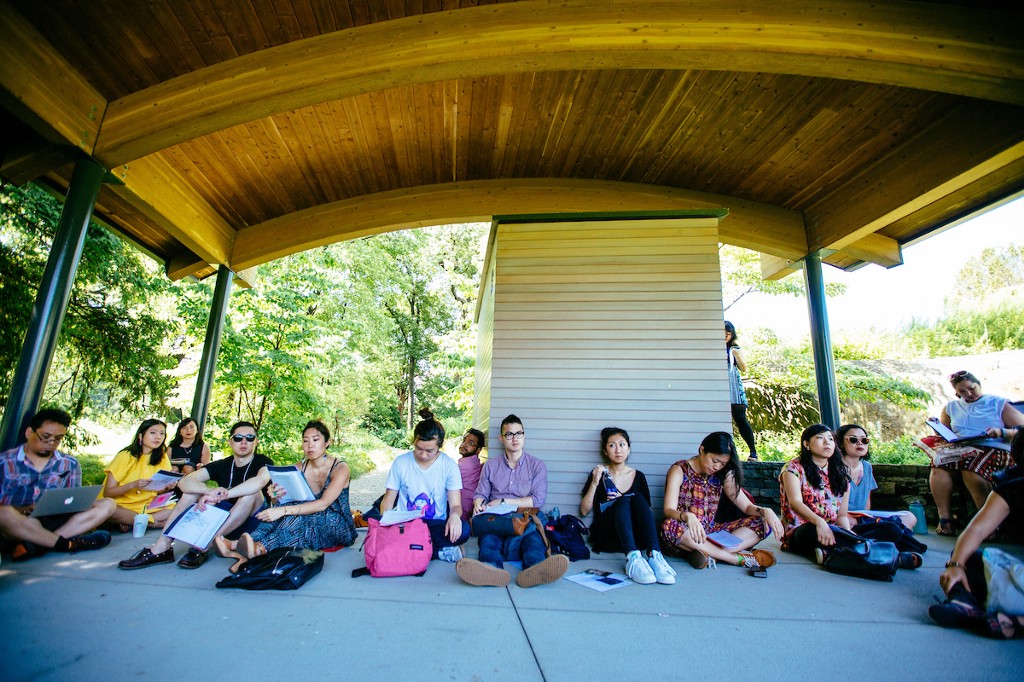
Kundiman Retreat, in partnership with Fordham University — Bronx, New York, $375 + $25 application fee
In partnership with Fordham University, the nonprofit organization Kundiman offers a retreat for 36 lucky participants who apply. Kundiman, according to their site, aims to nurture writers and readers of Asian American literature. Keeping with this mission, top Asian American poets and writers lead the Master Classes and manuscript consultations at the retreat. The five-day retreat also includes reading, writing circles, and informal social gatherings, with room and board included in the subsidized tuition fee. Applicants can apply to either the poetry or writing track: as part of the retreat, poetry fellows get a free consultation on a 10-page manuscript, while fiction fellows get a free consultation on a 15-page manuscript.
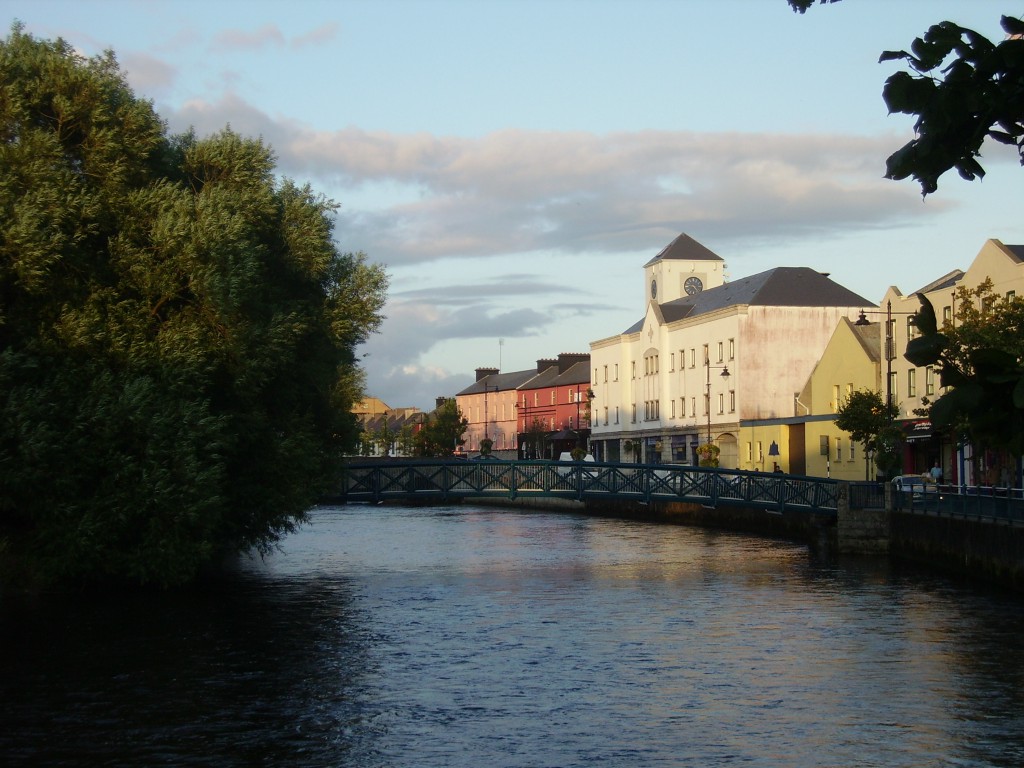
‘The Moth’ Retreat for Artists and Writers , Cavan, Ireland, €300, or about $355 a week
If you want to submerse yourself in history during your retreat, try crossing the pond and attending The Moth Retreat for Artists and Writers, located at a house in Cavan, Ireland. According to the retreat website, Samuel Beckett went to school just a half an hour northwest of the home, while renowned writers like Seamus Heaney and Patrick Kavanagh all lived within an hour’s drive. The house itself is completely private, and includes a large studio, kitchen, and breakfast room downstairs, and a bedroom and bathroom upstairs. Fresh eggs are provided every morning, though you are expected to furnish your own meals. If you want to bring a friend or guest, that will cost you an extra 100 euros. Need a ride to the bus station or help finding other provisions? The publishers of The Moth are nearby and ready to help, according to the retreat website.
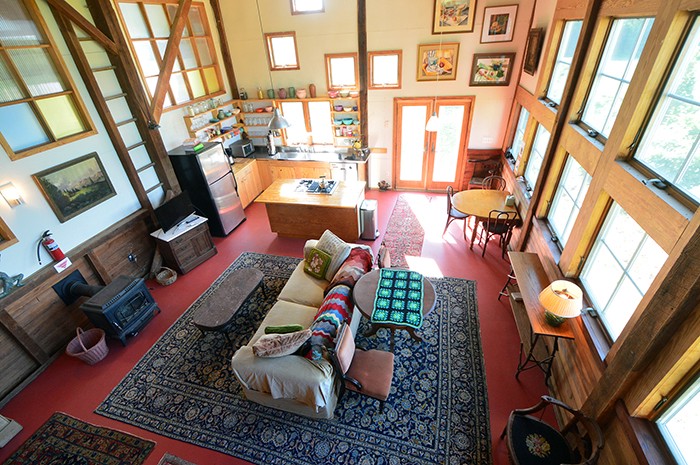
The Good Contrivance Farm Writer’s Retreat — Reisterstown, Maryland, $550 for one week
Another solitary retreat you could try is run by The Good Contrivance Farm, and is hosted in a contemporary loft apartment in the farm’s main barn. The Good Contrivance Farm is a non-profit that aims to preserve and restore historic farms in Maryland. To apply, send in a résumé and writing sample (space is booked on a first-come, first-served basis). Once booked, you’ll enjoy private use of the apartment, which includes great views of the farm, a full kitchen, 1.5 baths, a small library, and free WiFi. You can stay up to 4 weeks, with discounted rates the longer you stay (going as low as $450 per week if you stay the full four — though add $100 a week if you plan on having a second person stay with you.) Proceeds of the retreat all go to the non-profit.
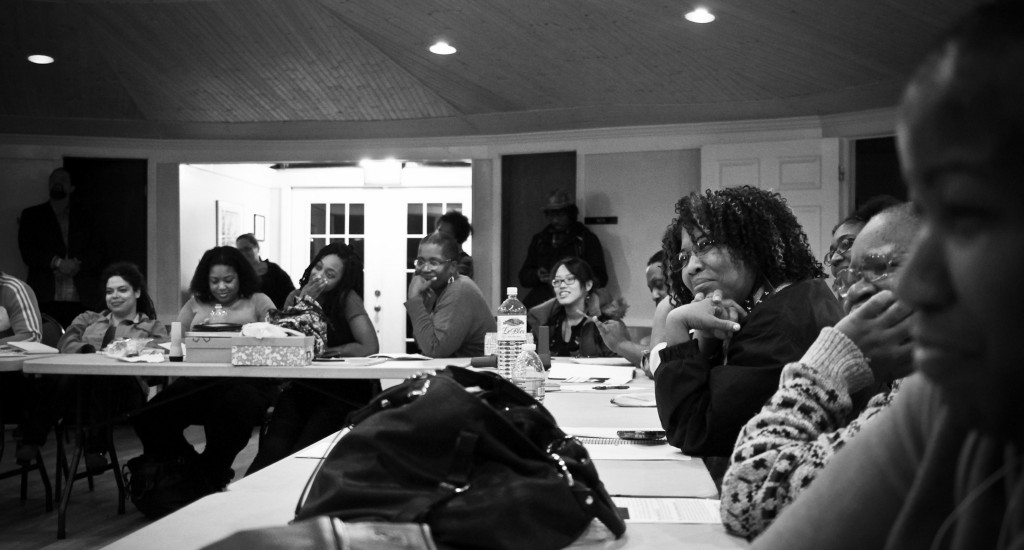
The Watering Hole Winter Retreat — McCormick, South Carolina, $299–$399
The Watering Hole Winter Retreat is focused on building community among its 42 hosted poets. The retreat has no traditional classrooms, and aims to provide more publishing opportunities for poets of color, according to its site. Facilitators and speakers include renowned National Book Award winners, MacArthur Geniuses, recipients of the NAACP Image Award, and more. Interested writers can apply with a cover letter and three poems, and the site mentions that preference is given to applicants who are members of The Watering Hole Facebook Group and those who follow the organization’s Facebook fan page. During the fellowship, writers stay at modern cabins at Hickory Knob State Park.
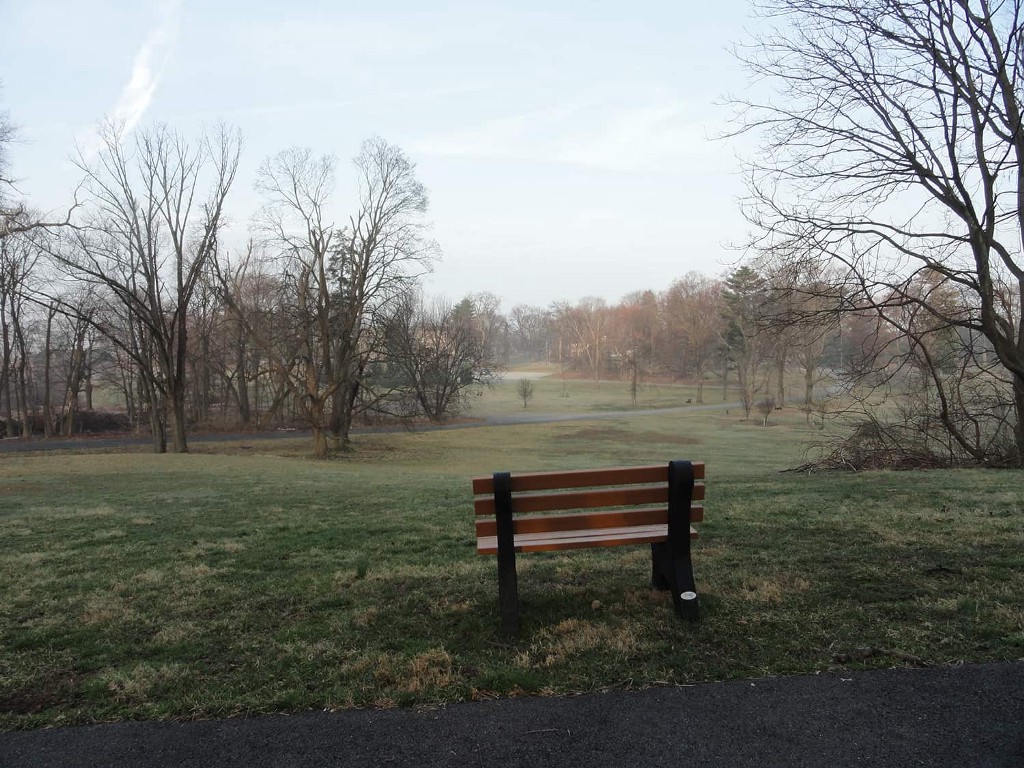
The Mariandale Center’s Life Writing/Memoir Retreat — Ossining, New York, $350
The Mariandale Center is a quiet spot in Ossining, New York that hosts retreats and other programs. Included in the writing retreat are daily workshops, craft discussions, writing prompts, feedback on writing, and time to work on projects. Writers can also enjoy walks near the mountains and river. For this particular retreat, which spans three nights, all meals are included, and writers of all genres and experience levels are welcome.
Take a break from the news
We publish your favorite authors—even the ones you haven't read yet. Get new fiction, essays, and poetry delivered to your inbox.
YOUR INBOX IS LIT
Enjoy strange, diverting work from The Commuter on Mondays, absorbing fiction from Recommended Reading on Wednesdays, and a roundup of our best work of the week on Fridays. Personalize your subscription preferences here.
ARTICLE CONTINUES AFTER ADVERTISEMENT

Stop Dismissing Midwestern Literature
It’s time to give up the mistaken idea that the heartland is a cultural wasteland
Dec 13 - Sonya Huber Read
More like this.

Free or Low-Cost Residency Programs from Around the World to Apply to in 2024
Working on your craft doesn't have to break the bank
Dec 26 - Monica Macansantos
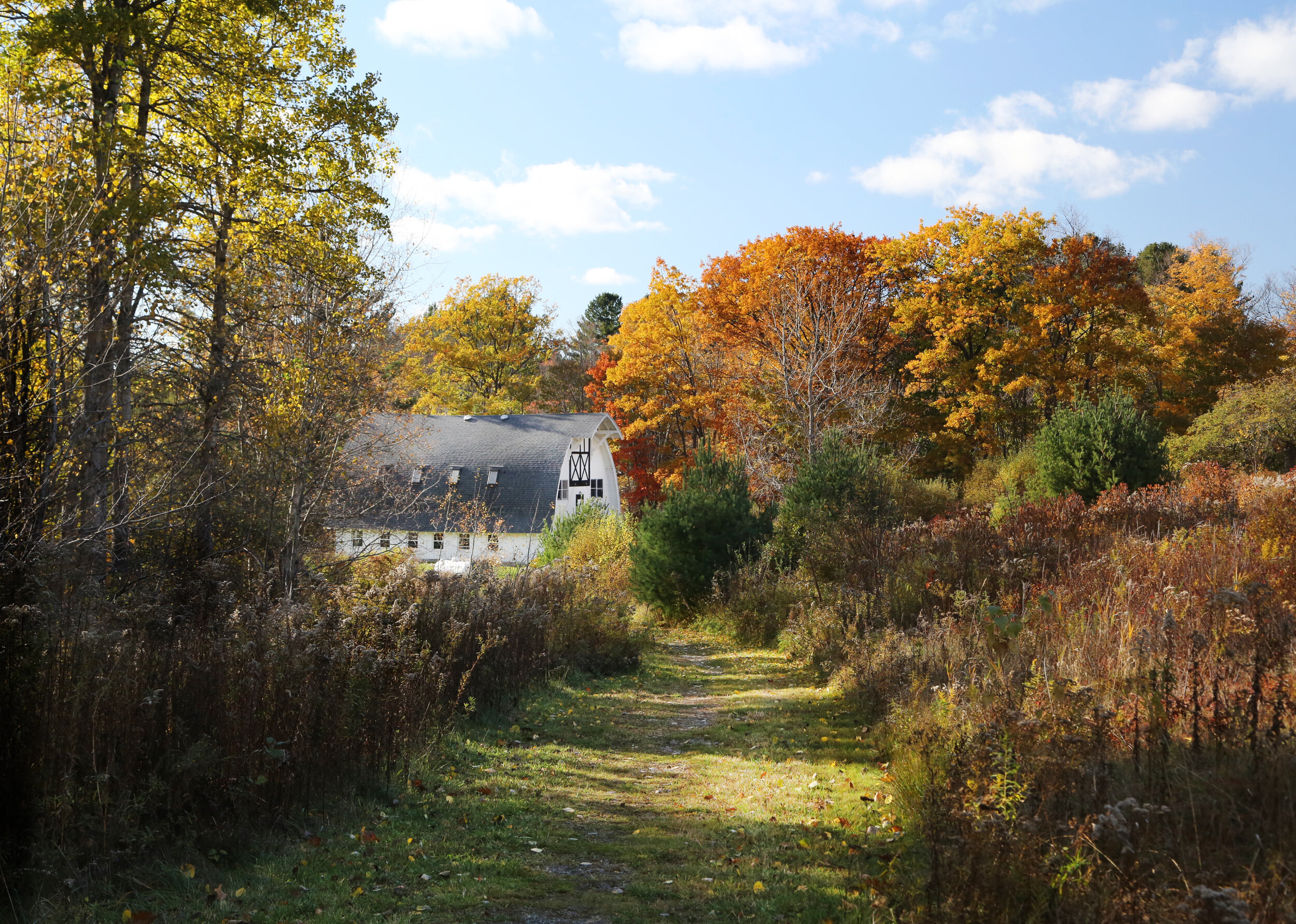
Free or Low-Cost American Writing Residencies to Apply for in 2024
Focusing on your craft doesn't have to break the bank
Dec 19 - Monica Macansantos
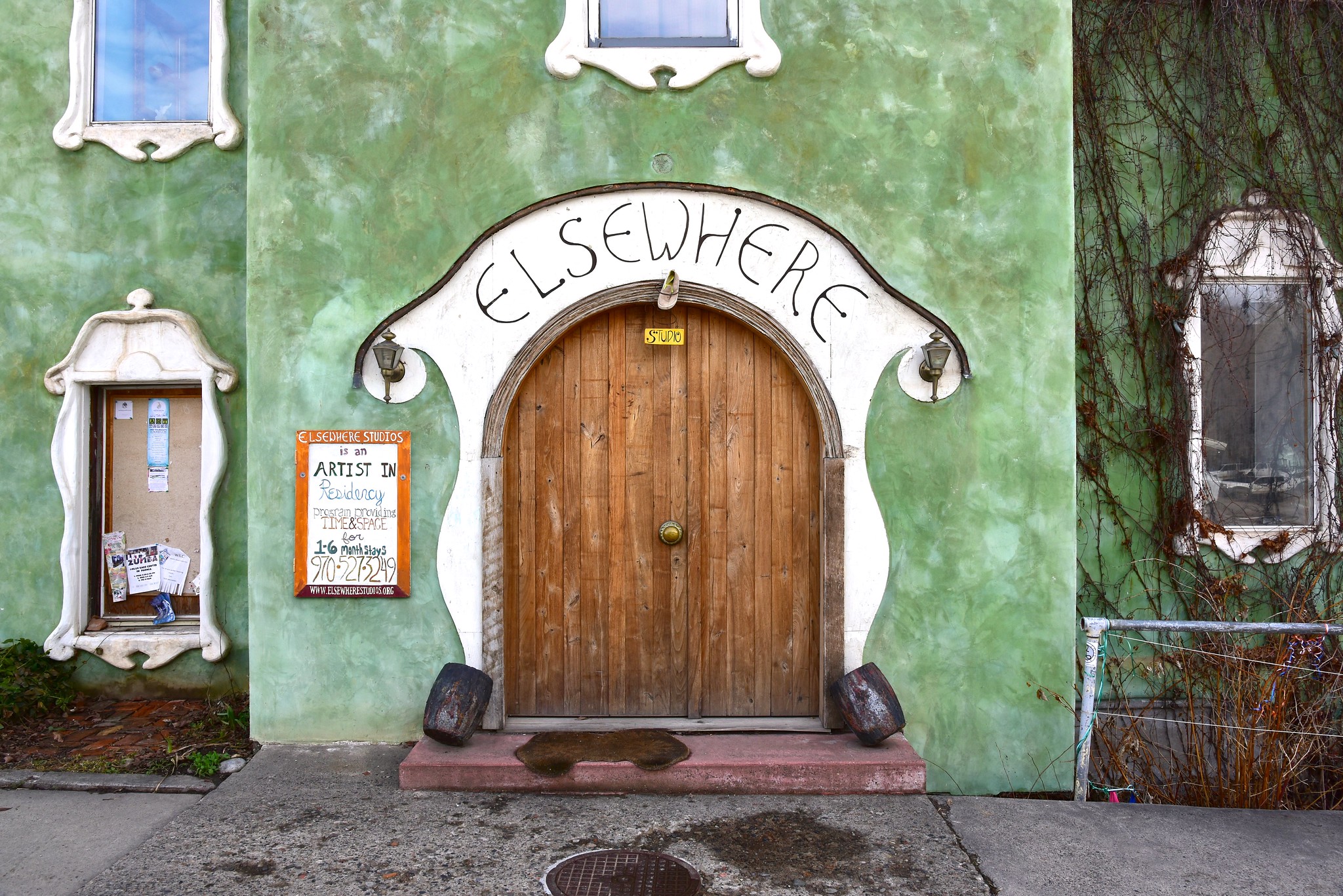
7 Writing Residencies That Are Family-Friendly
These retreats welcome writers who are also parents, by offering child care funding or letting you bring your kids along
Jun 10 - Gnesis Villar

DON’T MISS OUT
Sign up for our newsletter to get submission announcements and stay on top of our best work.


IMAGES
VIDEO
COMMENTS
Dates. Thursday 25 April & Friday 26 April 2024. In-person teaching, South Kensington Campus. BOOK your place. These writing retreats are a collaboration between the Graduate School and the Centre for Academic English. They provide a focused opportunity for you to make major advances in writing your thesis in a supportive environment that will ...
Your rights to publishing material from your thesis; The Graduate School offers: Preparing for Thesis Submission, Examination and Open Access Q&A session - in collaboration with the Library. Thesis workshop; Thesis writing retreat; Intellectual Property - online course; Publishing Open Access: Your research and thesis workshop
Here is some general advice: Think through the "narrative" of your dissertation before you start writing. Always take care to make the aims/goals/themes of the work clear. Before starting to write up, read a previous dissertation from your course from front to back. This will give you an indication of the level of quality you are expected ...
Impact case studies Read case studies about Imperial research that has made a difference Research news The latest research news from across the College Enterprise Learn how we support entrepreneurship and find research-driven solutions
Writing sessions for fellows. Join us in a friendly and constructive environment to work in a focused way with like-minded peers, using the established Pomodoro technique. Find out more. We run three different initiatives to help you find focused time and support for writing.
EEE PhD Milestones Guidelines. The flowchart below is a snapshot of the PhD lifecycle at Imperial, especially for students in the Department of Electrical and Electronic Engineering. Please read further guidance for each of the milestones in the respective sections below. Important: The postgraduate research (PGR) milestones process has now ...
Attending the Imperial College two-day writing retreat was a great opportunity to work on my thesis, in addition to getting support and advice on the overall PhD. Cumberland Lodge is a unique and distinctive place to write in, steeped in rich history and heritage.
Writing a Research Paper - for those with a high level of language proficiency who are writing papers for publication. Join the Writing Lab - every Wednesday during term time. Get 1:1 writing advice with a CfAE coach. Use Imperial Doctoral Academic Communication Requirement flowchart to identify the best course for you and your next writing task.
The writing retreat will enable you to: Dedicate two full, consecutive days to focus on a piece of writing ; Set a series of writing goals that you wish to achieve and work towards them during the retreat ; Identify and put in place strategies to eliminate distractions (e.g. procrastination)
Imperial College London. STEMM scene • STEMM research intensive • 3,500 PhD students • Over 1,000 theses produced per year • 4 year deadline for full-time ... Thesis Writing Retreat Team Janet Elena Julie Robin Hilary Andrew. Principles underlying the Retreat pedagogy: • to build a micro-community of practice in natural
NIHR ARC Northwest London Blog. Applied research collaborations. ARC NWL Blog; NIHR ARC NWL Official Website; Get Involved; NIHR ARC NWL Publications; Imperial College London; Glo
Britain's Imperial Retreat from China, 1900-1931 Phoebe Chow London, Routledge, 2017, ISBN: 9781138909847; 262pp. ... It is a bold and novel thesis and one that allows for a powerful analysis of Sino-British relations in the early 20th century, and of the wider issue of how foreign policy was already being shaped by public opinion, whatever ...
It is a week-long writing retreat on the shores of Elbow Lake, 30 minutes north of Kingston. Offered by the SGSPA, the retreat is to provide graduate students and postdoctoral fellows the opportunity to write in a relaxing and inspiring environment, setting aside the distractions of daily life at home. Each day will be loosely structured around ...
Take a long hard look at that fellow thesis retreat writing fantasizers. It's indeed evidence to support your argument to go off somewhere (overseas, another town in your own country, anywhere that is substantially away from your usual environment) and do some substantial writing. The article by Shapira and Liberman, explains recent research ...
Thesis Writing Retreat About the workshop. Join us for three days of dedicated writing time and make genuine progress on your thesis, project, or capstone. We'll have a beautiful space to work, facilitated sessions that animate the writing experience, and optional programming around writing, research, the thesis template, and thesis-adjacent ...
A typical day will follow the outline below: 8:30-9:00: Check-in with coffee and a light breakfast. 9:00-12:00: Structured writing time with academic support. 12:00-1:00: Lunch with a presentation by a guest speaker or panel. 1:30-1:50: Optional breakout session in a separate area from the retreat. 2:00-4:00: Optional free writing time.
Thesis Writing Retreat is limited to 25-30 registrants, on a first come-first served basis. Priority for spaces will go to those who have NOT attended the retreat in the past. If you are a returning participant, please fill out the registration form and indicate that you have previously attended. This will place you on a wait list.
The goal of a Dissertation & Thesis Writing Retreat is to provide a productive environment for completing a dissertation or thesis. Retreats are four-day events held three times a year, usually in mid-May, late August, and mid-January, although dates may vary. Registration is limited to graduate students who are currently working actively on ...
Moscow Marriott Imperial Plaza is an impeccable five-star hotel located in the center of Moscow. It can rightfully be called a real masterpiece of architecture. The elegant interior, designed in Art Deco style, geometric patterns, glossy textures, stucco, crystal and marble create an atmosphere of luxury and grace.
Moscow Marriott Imperial Plaza is a new and impeccable location for business trips, family vacations or exciting trips. The hotel, located in the center of Moscow, offers guests 268 rooms and suites, a signature restaurant, Cafe Imperial, a fitness center, as well as state-of-the-art banquet and conference rooms for events of any size at the highest level.
Completing your thesis can be much easier when adhering to a regular schedule and becoming a member of a supportive writing group. Groups keep writers accountable and foster a sense of community. With this in mind, the Writing Centre and School of Graduate Studies are pleased to host a 5-day Thesis Retreat for graduate students from April 22-26, 2024. If you are looking for distraction-free ...
Top Rated Writing Retreats in 2024 4 Day ReWrite Your Life Journaling & Tarot for Intuition, UK. Are you ready for 4 special, life-changing days? Imagine if someone could wave a magic wand, allowing you to step into your best life. Well, someone can, and that someone is you - because you have the power within you to change your life.
Wellspring House Retreat — Ashfield, Massachusetts, $260-$280/week. Retired English professor Preston Browning is the co-director of Wellspring House with his wife, author Ann Hutt Browning. The Wellspring House is run exclusively as a retreat for writers and artists, and as such is open all year: winter rates (mid-November to April 1st) are ...